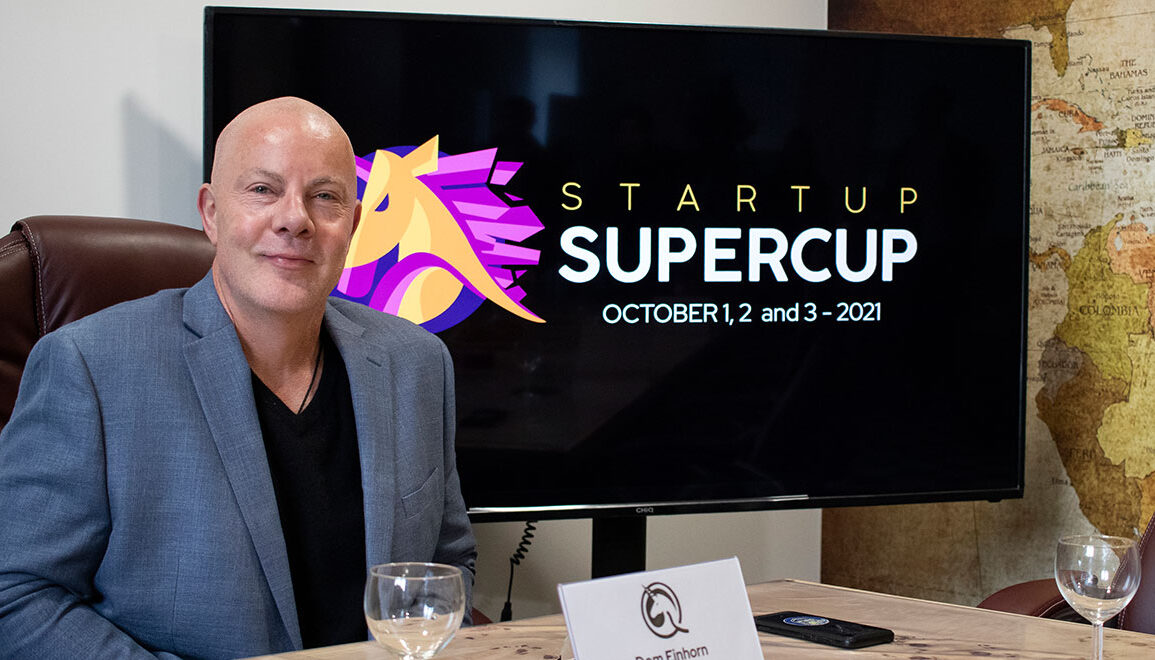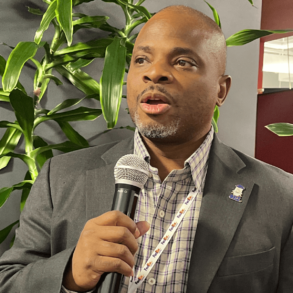In this exclusive interview for Today Washington Times, Roger McNamara speaks with Dom Einhorn, a French-American entrepreneur who has launched a hunger strike to expose the deep-seated corruption within the French legal system. Einhorn, who returned to France after 25 years of building a successful career in the U.S., sheds light on the diplomatic and economic repercussions this scandal could have, not only for France but also for the broader international business community. To help offset overwhelming legal costs, Einhorn’s wife has set up a GoFundMe page.
Roger McNamara: Dom, thank you for joining us. Your story has raised serious questions about the rule of law in France. Can you give our readers a sense of how this ordeal began?
Dom Einhorn: Thank you, Roger. This nightmare began in February 2022 when my home and offices in Sarlat-la-Canéda were raided by more than 50 armed officers. The authorities had nothing but vague rumors of wrongdoing, and yet they seized my assets—including nearly one million euros in cash—and my passports (US and French). I’ve been in legal limbo ever since, with no concrete charges or evidence presented against me. What initially seemed like a local legal issue quickly revealed itself as part of a broader, more sinister network of corruption.
Roger McNamara: That’s shocking. From what you’ve uncovered, this goes beyond just local corruption—there are diplomatic and economic implications. How do you see this playing out on the international stage?
Dom Einhorn: What’s happening to me has the potential to become a major diplomatic crisis for France. I’ve spent 25 years building businesses in the U.S. before returning to France with the best intentions—to invest in the local economy, create jobs, and foster innovation. Instead, I’ve been met with corruption at every level of the legal and government system. This doesn’t just impact me—it sends a message to foreign investors that their assets are not safe in France, and that the rule of law can be easily manipulated. The fact that this is happening without any intervention raises serious questions about the stability of France as a destination for investment. Diplomatic relations between France and its international business partners, particularly the U.S., could be strained if these abuses continue unchecked.
Roger McNamara: It seems like the repercussions for France could be severe. What do you think the financial and investment consequences will be if events like this are allowed to continue?
Dom Einhorn: The financial fallout for France could be catastrophic if they continue to allow these kinds of events to unfold with total impunity. Investors need stability, transparency, and trust in the legal system. Right now, none of those conditions exist in France. What international investors see when they look at my case is a country where judicial corruption is rampant, where assets can be seized based on rumors, and where the government seems powerless—or unwilling—to intervene. If France continues down this path, it risks losing billions in foreign direct investment. No company wants to invest in a country where their assets could be confiscated overnight, or where their businesses could be dismantled by corrupt officials without recourse.
Roger McNamara: How does this situation reflect on France’s international image, particularly given its history of championing human rights and the rule of law?
Dom Einhorn: The irony is that France has long prided itself as a champion of human rights and justice, but my case—and the cases of many others—reveals a very different reality. Right now, there are over 40,000 entrepreneurs in France trapped in similar situations. Their businesses have been seized, their lives destroyed, all under the guise of legal authority. This runs completely counter to the image that France projects internationally. If they don’t act to stop this, they’re going to lose credibility not only as a place for business but also as a global leader in defending human rights and justice. The diplomatic repercussions could be enormous. Nations and investors will begin to question whether France can still be trusted to uphold its own laws.
Roger McNamara: Your hunger strike is an extreme measure. What led you to make that decision, and what do you hope to achieve with it?
Dom Einhorn: I’m at a point where I’ve exhausted all legal avenues. For nearly three years, I’ve fought back through the courts, filed lawsuits, and submitted complaints, but the system has done nothing but stonewall me. Corruption is deeply entrenched, and the judicial process is being manipulated to wear me down. The hunger strike is a last resort—it’s my way of saying, “Enough is enough.” I want to bring global attention to the systemic corruption in France’s legal system, and I demand an independent investigation into the handling of my case and others like it. This hunger strike isn’t just about me—it’s about exposing the abuse of power that’s destroying businesses and lives in France.
Roger McNamara: You mentioned earlier that this isn’t an isolated case. How widespread is this issue, and what are the broader implications for foreign investors considering France?
Dom Einhorn: It’s much more widespread than people realize. There are tens of thousands of people in France, many of them foreign investors and entrepreneurs, who are facing similar treatment. Assets are being seized, businesses are being liquidated, and the legal system is being weaponized against anyone who poses a threat to entrenched local interests. This should serve as a warning to any foreign investor considering France. It’s a country where, if the wrong people decide you’re a threat, you could find yourself stripped of everything you’ve built. This is a huge red flag for global investors, and it’s only a matter of time before they start pulling back, looking elsewhere for more secure investment opportunities.
Roger McNamara: Given the magnitude of what you’re describing, why do you think there hasn’t been more intervention from higher levels of government, both in France and internationally?
Dom Einhorn: That’s the big question, isn’t it? The truth is, when corruption becomes systemic, the people at the top are often complicit, or at the very least, turning a blind eye. There’s a lot of money at stake, and when you’re dealing with these kinds of networks, no one wants to rock the boat. But this can’t last forever. The international business community is already starting to take notice, and I’m hoping that my hunger strike will force those in power to finally act. If they don’t, France risks becoming a pariah in the world of international business.
Roger McNamara: Let’s talk about your businesses. Despite everything you’ve gone through, you’ve continued to push forward. Tell me about Intelligent Games and Masters of Trivia.
Dom Einhorn: Intelligent Games is my latest venture, and despite the challenges I’ve faced, it’s been incredibly successful. We launched Masters of Trivia, a quiz platform that’s quickly gained a global following—over 100,000 downloads in the first four weeks. It’s a testament to the fact that, no matter how hard they try to bring me down, I’m still going to find a way to build and innovate. My passion for creating communities and building platforms hasn’t been destroyed by this corruption—it’s only made me more determined to succeed.
Roger McNamara: That’s inspiring. What’s next for you as this fight continues?
Dom Einhorn: I’m going to keep fighting. My hunger strike will continue until my demands are met. I want an independent investigation, and I want my assets returned. But more than that, I want to see real change in how the French legal system operates. If France wants to continue to be seen as a global leader in business and human rights, it needs to clean up its act, and it needs to do so now. This case is far from over, and I’m not backing down.
Roger McNamara: For those who are moved by your story and want to support you, what can they do to help in your fight for justice?
Dom Einhorn: The best way people can support me right now is by helping offset the massive legal costs I’ve incurred over the past few years. My wife, Mia Nguyen-Einhorn, has set up a GoFundMe campaign to raise funds for the ongoing legal battle. This fight isn’t just about me—it’s about exposing corruption and ensuring justice for all entrepreneurs and investors facing similar oppression. Any support, whether through donations or sharing the campaign, will help us continue this battle and bring the truth to light. The link to the GoFundMe page is available, and we deeply appreciate any contribution or amplification of our story.
Roger McNamara: Dom, thank you for sharing your story with us today. We’ll be following your hunger strike closely and reporting on its progress.
Dom Einhorn: Thank you, Roger. The fight is just beginning.
Closing Note:
Dom Einhorn’s hunger strike isn’t just a personal protest—it’s a rallying cry for international accountability. As the world watches, France’s credibility as a global business hub and defender of human rights is being called into question. If systemic corruption continues unchecked, the diplomatic and economic consequences could be severe, with investors and governments alike re-evaluating their trust in France’s legal system. If you would like to support Einhorn’s fight, consider donating to the GoFundMe campaign his wife has set up. #Justice4Dom








